Have you ever pondered over the possibility of turning onions and shallots skins and kitchen waste into revolutionary raw materials in a sustainable fashion?
As a rule, these items end up in compost or landfills. How could sustainable creativity reshape an industry dominated by harmful materials?
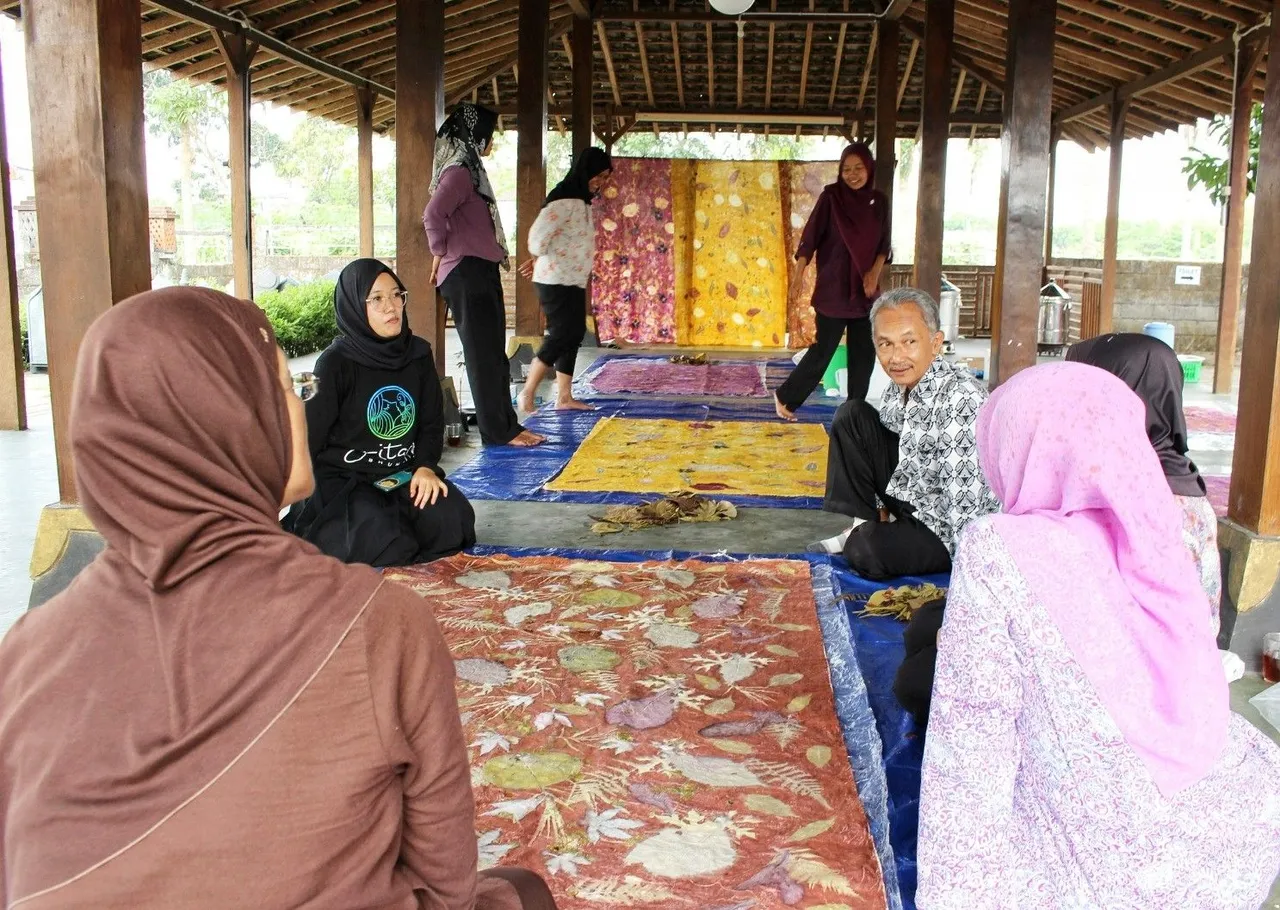
In the fingers of Kharolin Hilda Amazona (29), as a rule, known as Olin, this has been realized.
A woman from Wonorejo Hamlet, Sariharjo Village, Ngaglik Sub-district, Sleman County, Yogyakarta, turns onions and shallots skins peelings into beautiful works of art that are imprinted onto cotton and silk fabric.
Onion skins could be utilized as natural textile dyes due to their content of anthocyanins and flavonoids, which could be obtained through hot extraction and turned into a solution.
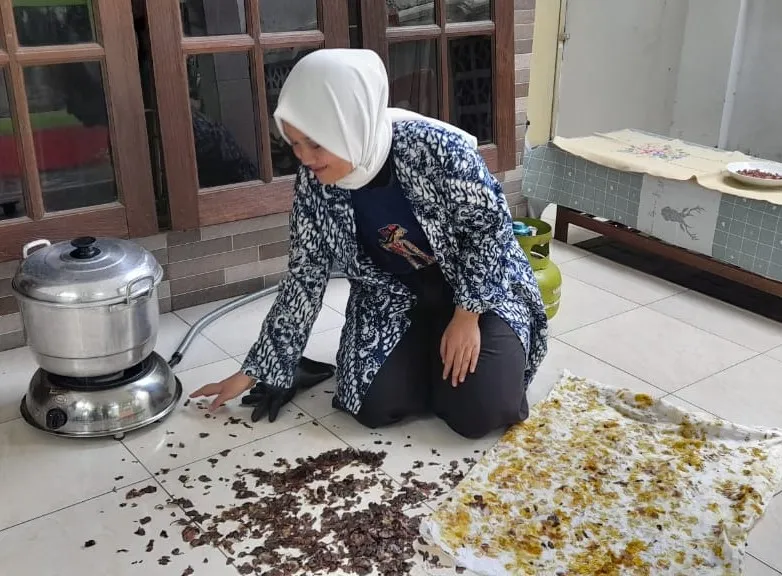
Olin harnesses onions and shallots skins as natural dyes for sustainable fashion production under her label Gitarja Bhumi.
Olin shared that the name "Gitarja" is derived from the childhood name of Queen Tribhuwana Tunggadewi. Dyah Gitarja reigned Majapahit from 1328 to 1350 AD. Alongside Mahapatih Gadjah Mada, they played a crucial role in unifying the archipelago at that time.
In line with Olin's retelling, the seemingly impossible idea of unifying the archipelago emerged from Gayatri Rajapatni, Dyah Gitarja's mother, who handled a significant role in elevating Gadjah Mada from an ordinary member of society to a high-ranking official (patih).
"Gitarja Bhumi carries the philosophy that women could overcome their limitations much like Dyah Gitarja, the sole Queen Conqueror of the Archipelago," Olin stated on Wednesday, August 16, 2023.
"Vitally in conquering the economic limitations and gender equality challenges that burden rural women (Wonorejo), showing that village women are inherently strong, much like the Earth (bhumi)," she added.
As far as now, onions and shallots have often been considered kitchen waste and casually discarded by residents here. However, as per Olin, onion skins could be utilized as eco-friendly clothing dye (eco-print).
On silk, onion skins turn orange; on cotton, they could turn brown based on the process. Beyond these, Olin and her mother Musiyati (55) are visionary researchers, who explore waste like banana peels and jengkol as raw materials.
These two heroines have well cultivated a variety of plants used as natural dyes, such as secang, kersen which has become a favorite, janda bolong, kolonjono, flowers, decorative bamboo, teak leaves, ketapang leaves, and even kenikir leaves.
Empowering Borough Women Through Collaborative Efforts
Nowadays, 60 percent of garment production is dominated by synthetic fabrics such as nylon, polyester, and acrylic, which are raw materials derived from petroleum.
The report written by Leah Messinger indicates that synthetic fabrics release microfibers into the water when laundered, and the resulting laundry waste eventually flows into the ocean, endangering marine life and ultimately entering our bodies through the seafood we eat up.
Due to that, it's no wonder that globally, the fashion industry ranks as the second most polluting sector after the oil and gas industry, contributing to an annual emission of 1.2 billion tonnes of greenhouse gases.
Sustainable fashion is often hailed as the solution. There are three main factors to consider for fashion to be deemed sustainable.
Beginning with the selection of raw materials, natural fibers are more environmentally friendly compared to synthetic ones. In any case, merely being a natural fiber doesn't guarantee sustainability; it’s also important to consider where it came from.
The second aspect is how these raw materials are processed. Sustainable producers need to minimize emissions, be chemical-minimalized, recycle waste, and establish a circular production process.
Third place, equally significant is examining the broader impact on the local community.
Based on these three factors, Gitarja Bhumi stands as a proponent of sustainable fashion in Sleman County. Its fabrics are primarily cotton and silk, with the latter commonly sourced from the cocoon of cultivated mulberry silk moths.
Owing to dyeing, kitchen waste, and leaves are utilized, and collected in an environmentally friendly manner. Olin personally grows the necessary plants for eco-printing.
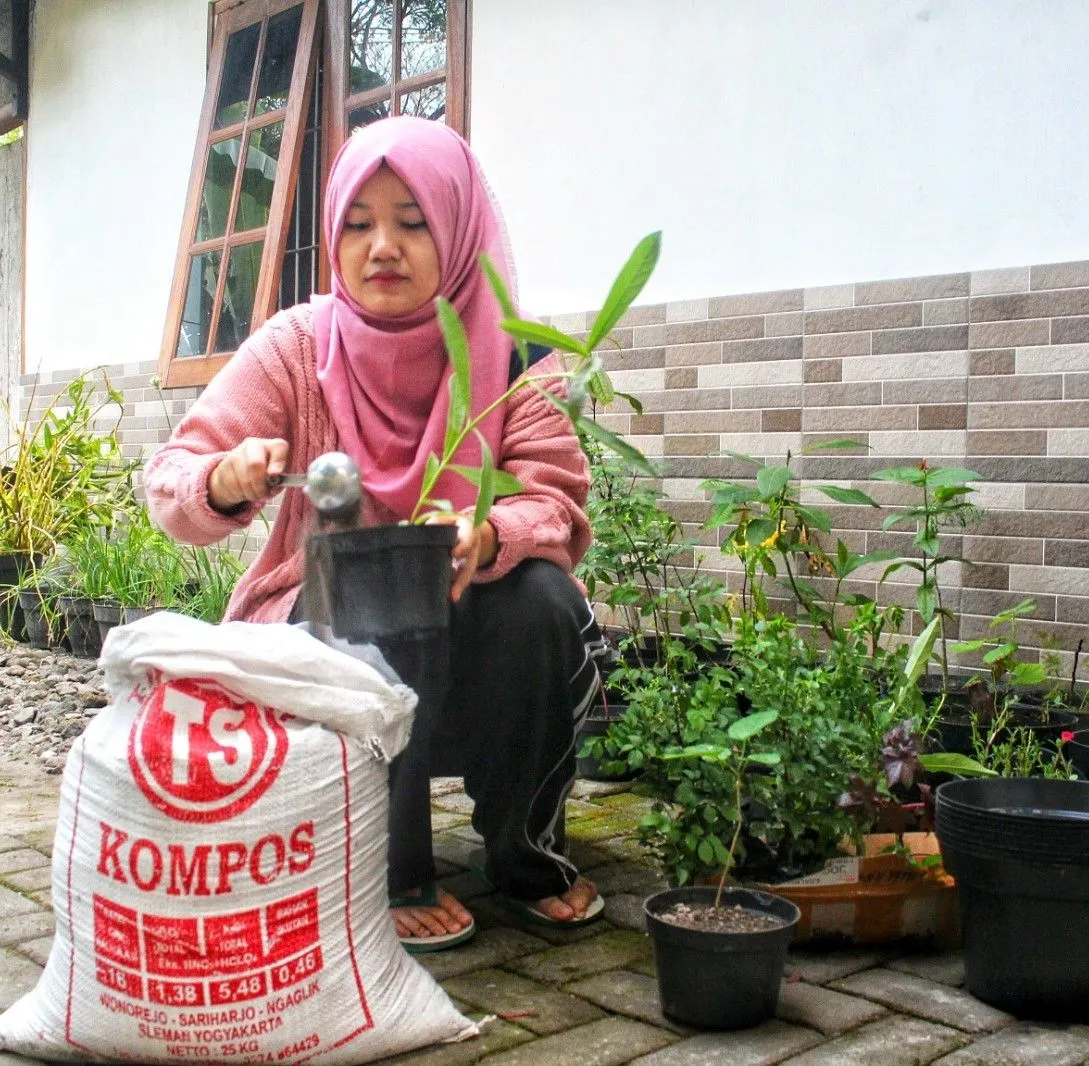
The remaining eco-print waste is repurposed and put into biopores to nurture the soil, fostering the sustainable regrowth of eco-print plants. Encouraging the creation of sustainable living.
"We take from nature, we give back to nature; we don't want to exploit nature," said Olin.
Olin doesn't work solely, she and her mother, Musiyati empower village women who are part of the Family Welfare Development (Pembinaan Kesejahteraan Keluarga, PKK) and the Women Farmers Group (Kelompok Wanita Tani, KWT).
They provide training that ranges from designing and embroidering to imparting ecoprint techniques, and even financial literacy to determine pricing for market readiness.
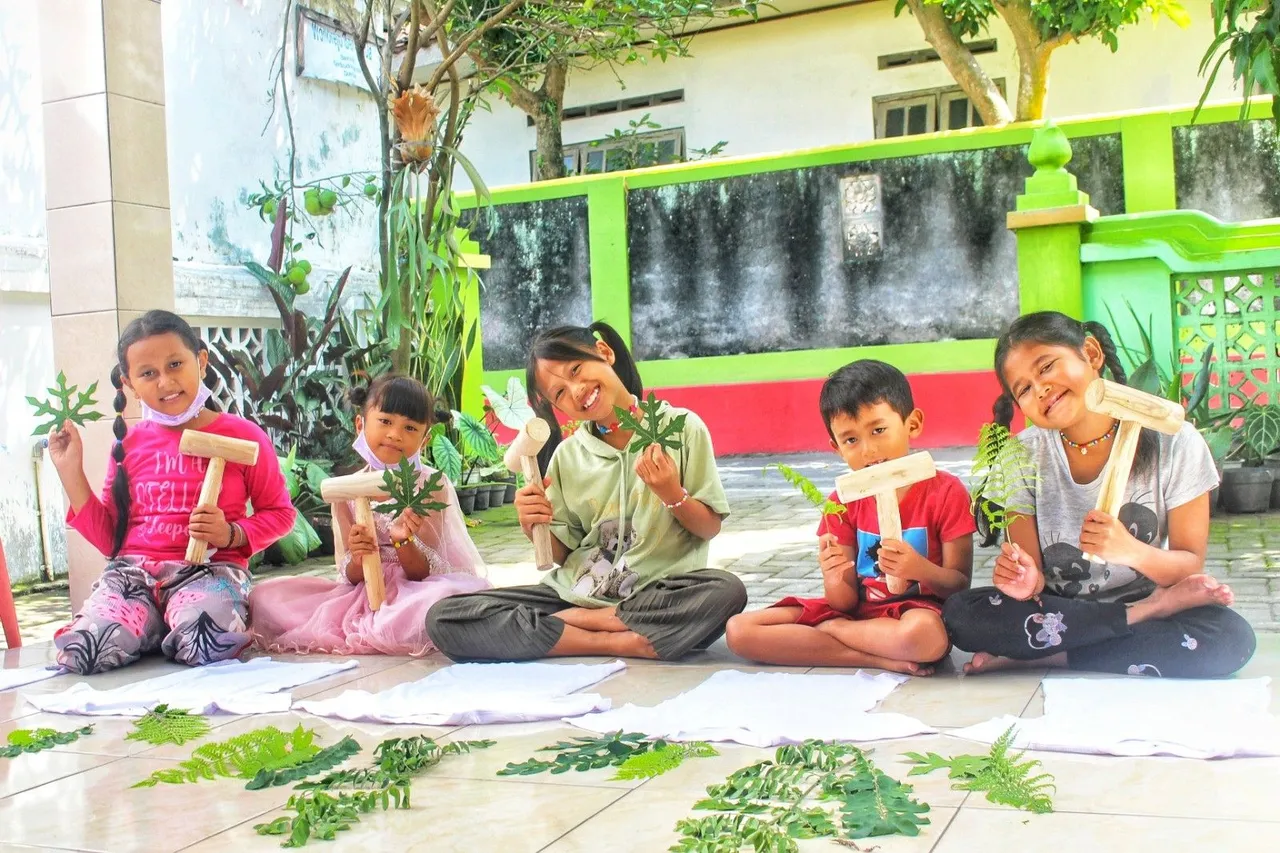
In addition to training adults, they also mentor children. The children are taught to apply eco-printing on t-shirts.
"We have plans for another training, this time with t-shirts," Musiyati chimed in. "With regular practice, we could achieve this, and it's beneficial for us to reduce waste as well."
Some of their works were showcased during a fashion show, which was part of the "Gayatri Rajapatni Project" initiated by Olin, held at Pendopo Kebon Deso, Wonorejo, at the end of July 2023.
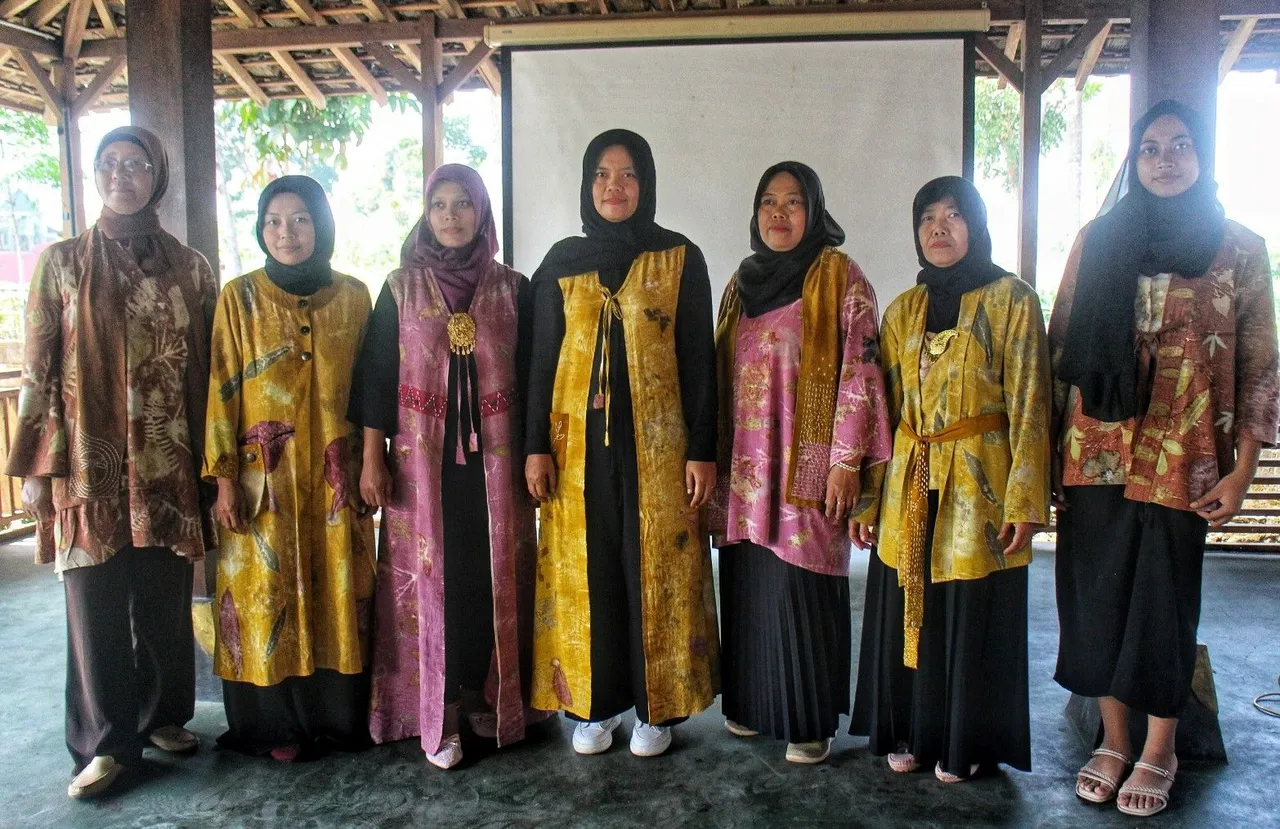
Olin's dedication and empowerment of women and marginalized groups are commendable. Formerly, she was the Founder and CEO of the social enterprise Menganyam Pesisir officially established on August 18, 2018.
Specifically, she taught coastal women weaving skills and product creation through skill training activities, fostering coastal areas through entrepreneurship.
Menganyam Pesisir was subsequently halted due to the Covid-19 pandemic, causing several of its business lines to fold. This downturn also impacted the income of Olin's mother, who had been selling groceries for 20 years – her earnings plummeted by a drastic 80% due to activity restrictions.
The challenging period also affected women and homemakers in Wonorejo Hamlet, Sariharjo Village, the vicinity of Olin's residence, as their husbands faced job losses due to layoffs.
By doing so, Olin refused to stay idle, with support from her mother, she learned eco-printing from three different places and persevered through trial and error.
After numerous attempts, on June 17, 2022, Olin took a step forward into sustainable fashion. She empowered women in Sariharjo Village, marking the beginning of her journey.
"We dream that perhaps this village will become one of the eco-print villages in Ngaglik, an eco-print icon of Sleman. So that when people want to learn eco-printing or find eco-print products, they could come to our village," Olin concluded our conversation [mhg].